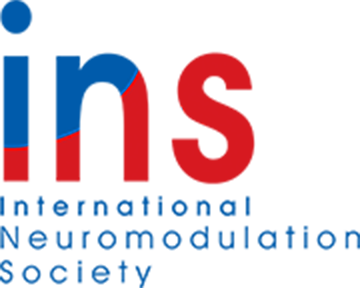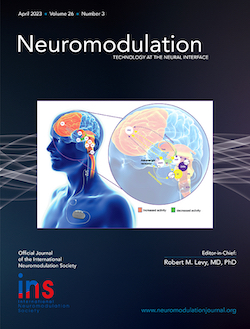The International Neuromodulation SocietyThe Fastest-Growing, Worldwide Multidisciplinary Body Devoted to Building Knowledge of NeuromodulationThe International Neuromodulation Society (INS) is a non-profit group of clinicians, scientists and engineers dedicated to the scientific development and awareness of neuromodulation – the alteration of nerve activity through targeted delivery of a stimulus, such as electrical stimulation or chemical agents, to specific neurological sites in the body. The San Francisco-based INS was formed in 1989 and educates and promotes the field through meetings, its peer-reviewed journal Neuromodulation: Technology at the Neural Interface, mentorship, and chapter websites. The INS also provides information for patients and produces rolling news briefs about this rapidly evolving field. Donate TodayThe INS Peer-Reviewed JournalThe INS journal Neuromodulation: Technology at the Neural Interface has a growing Impact Factor and is indexed in Index Medicus, MEDLINE and Pubmed from its first issue in 1998. Members may log in to the members-only section to read the journal online. The journal also has social media accounts on Twitter, Facebook, and Instagram.
The Neuromodulation Podcast has been developed for our membership to dive into the forefront of today's emerging neuromodulation techniques, insights, and ethical and clinical applications. Join the multidisciplinary collaboration of medical care providers, scientists, and engineers who are part of the global conversation that's shaping the future of healthcare. Subscribe now wherever you get your podcasts. What is Neuromodulation?Medical Professionals can learn about various considerations concerning neuromodulation and clinic contacts. Once your preliminary questions have been answered, please use the Contact Us facility to find out more and to discuss specific objectives. Others may simply wish to join the INS and one of its related chapter societies, please use the Membership Application. Clinical trials that involve a wide range of emerging neuromodulation approaches are listed on our Research page. Neuromodulation clinical trials address symptom control through nerve stimulation in such condition categories as:
Breaking NewsJune 17, 2024 - INS President Dr. Marc Russo and INS President-Elect Dr. Konstantin Slavin discuss the current “state of the union” in neuromodulation, how the field is evolving and the challenges and opportunities that lie ahead in an interview with SmartTRAK at INS 2024. (Source: SmartTRAK) Study Finds Spinal Cord Stimulation Effective for Chronic Pain May 29, 2024 - A Norwegian clinical review suggests that spinal cord stimulation (SCS) is a valuable treatment for chronic neuropathic pain, providing symptom relief and improving quality of life. Although some studies question its efficacy, many patients report satisfaction with the treatment, with a history of successful delivery at Oslo University Hospital since 1998. May 20, 2024 - A study published in Nature Medicine demonstrates the safety and efficacy of ARCEX Therapy, a non-invasive spinal cord electrical stimulation, in improving arm and hand function for individuals with chronic cervical spinal cord injuries. In a trial involving 60 participants, 72% showed significant improvements in strength and functional performance, with no serious adverse events reported. The therapy, delivered during structured rehabilitation, also enhanced sensory abilities and quality of life, suggesting a promising treatment for chronic tetraplegia. (Source: Nature) Electrical Stimulation Device May Enhance Recovery for Spinal Injury Patients May 20, 2024 - An international trial has found that the Arc-Ex device, which stimulates spinal nerves with electrical pulses, significantly improves strength, control, and sensation in patients with spinal cord injuries when combined with standard rehabilitation. The trial, involving 65 tetraplegic patients, reported that 72% showed functional improvements, with 52% experiencing enhanced quality of life. The non-invasive device is worn externally, helping intact nerves restore partial communication between the brain and paralyzed body parts. The therapy could soon be approved in the US and Europe. (Source: The Guardian) New Guidelines for Intrathecal Drug Delivery in Chronic Noncancer Pain Released May 16, 2024 - The Polyanalgesic Consensus Conference (PACC) has updated its guidelines on intrathecal drug delivery for chronic noncancer pain, providing evidence- and consensus-based recommendations to enhance safety and efficacy. The guidelines address patient-specific factors, trialing methods, opioid dose escalation, and delivery system complications. These updates aim to optimize therapy and improve outcomes for patients suffering from chronic noncancer pain. (Source: ScienceDirect) To see select neuromodulation news by category, as well as news about the INS in particular, please visit the Newsroom. To see archived news briefs dating back to January 2011, visit the News Archive. Continue Reading News Briefs |


